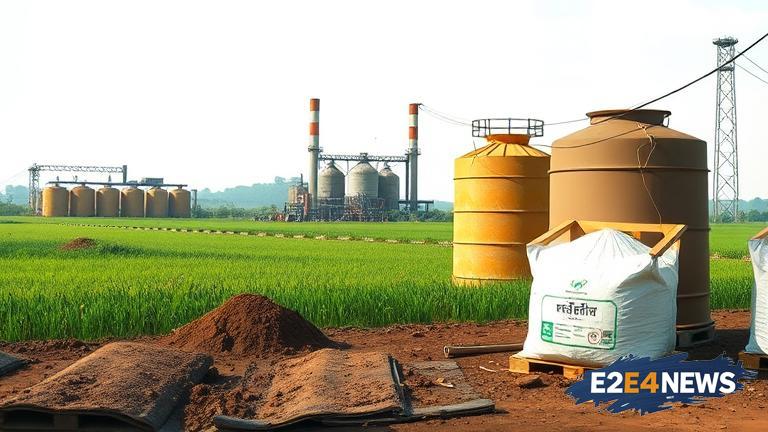The Indian Meteorological Manufacturers Association (IMMA) has recently appealed to the government to reconsider the classification of non-subsidized fertilizers under the Essential Commodities Act. This move is aimed at fostering a more competitive and liberalized market environment for the fertilizer industry. The Essential Commodities Act, enacted in 1955, grants the government the authority to regulate the production, distribution, and supply of essential commodities, including fertilizers. However, the IMMA argues that the inclusion of non-subsidized fertilizers in this act hinders the growth and development of the industry. By removing non-subsidized fertilizers from the act’s purview, the government can promote fair competition, encourage private investment, and enhance the overall efficiency of the fertilizer sector. The IMMA’s plea is supported by the fact that the fertilizer industry is a critical component of India’s agricultural sector, which is the backbone of the country’s economy. The industry provides employment opportunities to millions of people and contributes significantly to the nation’s GDP. Nevertheless, the sector faces numerous challenges, including inadequate infrastructure, inefficient distribution networks, and stringent regulatory frameworks. The Essential Commodities Act, in particular, has been criticized for its restrictive provisions, which limit the industry’s ability to respond to market demands and innovate. The act’s regulations also lead to bureaucratic delays, corruption, and inefficiencies, ultimately affecting the availability and affordability of fertilizers for farmers. The IMMA’s request is not unprecedented, as similar demands have been made by other industry stakeholders in the past. The government has also acknowledged the need for reforms in the fertilizer sector, recognizing the importance of creating a more conducive business environment. In recent years, the government has introduced several initiatives aimed at promoting the use of fertilizers, improving agricultural productivity, and enhancing farmers’ incomes. However, more needs to be done to address the structural issues plaguing the industry. The removal of non-subsidized fertilizers from the Essential Commodities Act would be a significant step towards creating a more liberalized and competitive market. This would enable private players to participate more actively in the industry, leading to increased investment, innovation, and job creation. Furthermore, it would allow farmers to access a wider range of fertilizer products, improving their productivity and incomes. The IMMA’s appeal has sparked a debate about the role of the government in regulating the fertilizer industry. While some argue that the Essential Commodities Act is necessary to protect farmers’ interests and prevent exploitation, others contend that it stifles competition and innovation. As the government considers the IMMA’s request, it must weigh the potential benefits of deregulation against the need to ensure that farmers’ interests are protected. The outcome of this decision will have significant implications for the fertilizer industry, agricultural sector, and the economy as a whole. In conclusion, the IMMA’s plea to remove non-subsidized fertilizers from the Essential Commodities Act is a timely and necessary step towards promoting a more competitive and efficient fertilizer industry. The government must carefully consider this request and work towards creating a more conducive business environment that benefits both farmers and industry stakeholders. The future of India’s agricultural sector and economy depends on it. The government’s decision will be closely watched by industry stakeholders, farmers, and the general public. The fertilizer industry is a critical component of India’s economy, and any reforms will have far-reaching consequences. The IMMA’s appeal is a significant development in the industry, and its outcome will shape the future of the fertilizer sector. The government must prioritize the interests of farmers and industry stakeholders while promoting a more competitive and efficient market environment. The removal of non-subsidized fertilizers from the Essential Commodities Act would be a significant step towards achieving this goal.
